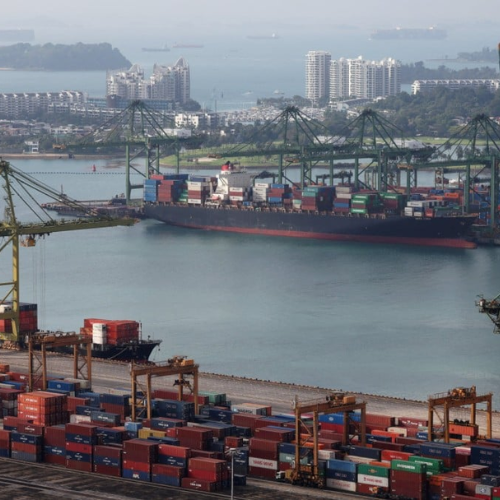Vietnam is caught in a tricky situation. It has been hit with high U.S. tariffs — up to 46% — on some of its goods. This happened after complaints that Chinese products were being shipped through Vietnam to avoid American taxes. Some of these goods even had “Made in Vietnam” labels, even though they were mostly made in China.
To avoid more trouble, Vietnam has offered to fix the issue. It promised to stop the practice of letting Chinese goods pass through its borders and look like they were made in Vietnam. This practice is called “illicit transhipment.” It means products travel through a country just to get a label that helps avoid higher taxes, without really being changed or worked on there.
Vietnam doesn’t want to upset either of the big players — the U.S. or China. The U.S. is its biggest customer, and China is a key neighbor and source of investment. So, it is trying to keep both happy while dealing with the pressure from Washington.
Chilling Chinese Espionage Plot Erupts at Hotel in Alps Near F-35 Facility
After the tariffs were announced, the Vietnamese government held an emergency meeting. Officials from customs and trade departments were told to tighten checks and come up with a plan to stop illegal re-routing of Chinese goods. They were given two weeks to act, though that deadline may be pushed to the end of April.
The Transhipment Trick
The U.S. is upset because it believes that many Chinese goods are being sneaked in under false labels. Some ships carrying Chinese-made products stop briefly in Vietnam, just long enough to pick up paperwork saying the items are Vietnamese. Then, they head to the U.S., where the goods are taxed less.
Vietnam has become a popular place for companies trying to avoid Chinese tariffs. Some businesses set up factories there to get around U.S. duties on Chinese goods. These factories might add a small bit of labor or assembly, but most of the material still comes from China.
The country’s exports to the U.S. have grown fast, but so have its imports from China. That means a lot of what it sells to the U.S. might have started out as Chinese goods. U.S. officials believe this is a problem and want them to stop it.
The government has now said publicly that it will crack down on this kind of trade fraud. But they haven’t shared exactly how they will do it.
Tougher Rules on Tech and Exports
Vietnam is also planning new rules to control sensitive products that pass through the country. This includes technology like computer chips that can be used for both everyday and military purposes — known as dual-use items.
Blockbuster Ban! China’s Vicious Retaliation Sends Shockwaves Through Hollywood
A draft government document says Vietnam wants to make sure these high-tech goods are not sent to other countries, like China, without the original exporter’s permission. The U.S. is especially concerned about its advanced technology ending up in the wrong hands, and it sees controlling chip exports as a national priority.
To deal with this, the country is preparing new approval steps for such exports. This move seems to have been discussed with U.S. trade officials earlier this year.
Vietnam is also allowing a satellite internet service to enter its market. This company is connected to a well-known American businessman who has close ties to U.S. political leaders. The service has plans to set up ground stations across Vietnam, and the government is giving it special permission to operate.
At the same time, they may approve a new type of airplane made by a Chinese company. This approval could help the Chinese planes gain acceptance in other countries. Meanwhile, Vietnamese airlines have also signed deals involving loans from the U.S. to buy American-made planes.
F-35 Fighter Jet Becomes $2 Trillion Disaster as Allies Abandon Costly Jet Amid Broken Promises
All these actions show that Vietnam is walking a tightrope. It wants to keep trade flowing with both the U.S. and China, while trying to fix problems that could lead to more tariffs or restrictions.


